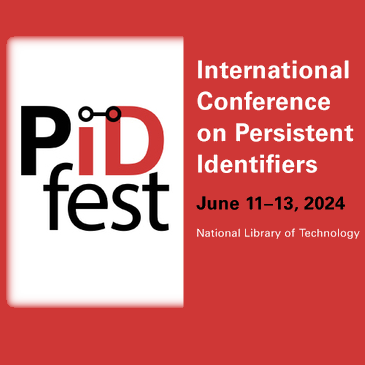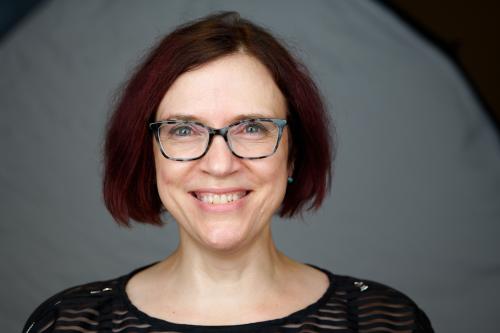PIDfest in Prague: Recap & Takeaways
Moving Forward with Persistent Identifiers

Last month, members of the NISO Team joined a group of stakeholders from around the world and across the academic ecosystem as they met at the Czech National Technical Library (NTK) in Prague for PIDfest—a three-day conference focusing on persistent identifiers and their importance to advancing open research. Held from June 11–13 and organized by the NTK (with the support of the EU and the Czech Ministry of Education through the CARDS project) and the Australian Research Data Commons (ARDC, funded by the National Collaborative Research Infrastructure Strategy), PIDfest was the first international conference dedicated to persistent identifiers since the last PIDapalooza meeting, held virtually in 2021. Perhaps because so much time had lapsed, PIDfest generated a great deal of excitement. Onsite registration filled to capacity shortly after opening, with 180 participants attending in person and an additional 100 viewing remotely.
Although the conference hosts, organizers, and volunteers chose deliberately not to model the event after PIDapalooza, PIDfest, like its predecessor, attracted a unique crowd, united in their passion for persistent identifiers, metadata, and open research infrastructure, but bringing multiple and varied views of PID challenges and priorities. The conference opened with a keynote panel featuring international perspectives on PIDs, offering insights from a researcher, graduate student, publisher, and tech and scholarly infrastructure providers. During Day Two’s keynote featured panelists representing PID providers—ARDC, DataCite, the DOI Foundation, ORCID, and ROR. These panel presentations set the stage for a lively two days of concurrent sessions, including several hosted by NISO: an interactive session on making the case for investment in PIDs (co-hosted by myself and Phill Jones of the MoreBrains Cooperative) and Todd Carpenter's presentations on both the US national PID strategy currently under development and the new ISO Universal Media Identifier, or UMID.
Other sessions covered such topics as inequitable access to PIDs (especially in LMIC countries), new and emerging PIDs and PID use cases, and national PID strategies from around the world. There were many discussions around PID interoperability and how stakeholders could better incorporate PIDs into workflows and systems. Some participants expressed concern about the sustainability of PIDs. And although speakers made a convincing case that national PID strategies can reduce the administrative burden on researchers and institutions, participants also agreed that buy-in at the local level is critical for successful adoption and implementation.
PIDfest continued the PIDapalooza tradition of introducing some fun in between these more serious discussions. In honor of the organizers’ countries of origin, the conference began with a special opening: a performance by a didgeridoo player, followed by traditional Czech folk music, singing, and dancing. On the evening of Day Two, attendees boarded a riverboat for dinner and an evening cruise on the Vlata, with beautiful views of the city and some of its famous landmarks, including Prague Castle and St. Vitus Cathedral. Conference sponsors also got in on the fun: evoking Taylor Swift’s Eras tour, ORCID hosted a friendship bracelet-making table during the meeting, and the Open Science Framework organized a session featuring a board game about PIDs. Finally, the inimitable Suze Kundu of Digital Science (also a PIDfest sponsor) closed the conference with a masterful recap of important takeaways from the prior three days that also took the form of a very competitive bingo game.
The third and final day of the conference included multiple “unconference” sessions on topics proposed during the prior two days of the event. This format was a great way to end the meeting, offering attendees the opportunity to gather informally and address questions and issues emerging from preceding discussions and presentations. One notable and well attended unconference session was entitled “How to Run a PIDfest,” during which the fearless conference organizers from NTK and ARDC shared information and insights with those interested in hosting the next PIDcentric event. To whom will they pass the torch? That remains to be seen, but in the wake of the enthusiasm so evident in Prague, it seems likely that we won’t have to wait too long to hear about the next PIDfest.
